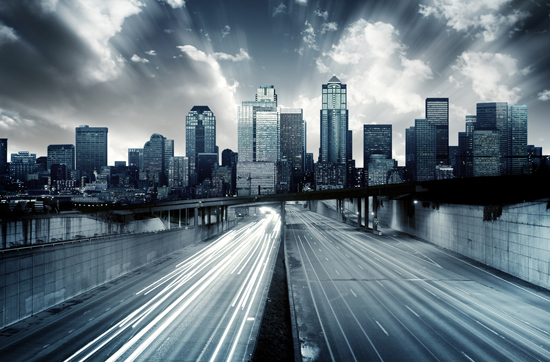According to the United Nations, by the year of 2050, 70% of the world’s population will be living in urban areas. So what will the city of the future look like? These are some of the questions that dominate our conception of “The City 2.0”: How will we transport ourselves? Where will we grow our food? How will we power our homes, our offices, our grids? What will happen to the natural world?
Today — October 13, 2012 — communities across the globe will be offering answers to these questions as part of TEDxCity2.0 Day, when nearly 70 TEDx events will be held in conjunction to dream about the city of the future. Events will be taking place from Antananarivo, Madagascar, to Daejeon, South Korea. In fact, so many events are happening today that the TEDx program is celebrating an exciting milestone — the 5,000th event since its launch in 2009.
To celebrate the City 2.0 and the spirit of urban inspiration, here are 6 great TEDxTalks about the future of cities.
On dismantling urban highways in cities: Diana Lind at TEDxPhiily Across the United States, cities are re-purposing their streets. In this talk at TEDxPhilly, Diana Lind describes many of the ways urban spaces can benefit from rejecting “car culture” and reconstructing the grid, from adding bike lanes, to creating greenspaces, to turning streets into people-friendly social spaces.
Urban farming: Roman Gaus at TEDxZurich Roman Gaus never thought he’d be a farmer. Now part of an urban farming collective in his city of Zurich, Switzerland, he harvests his own fish and produce on a regular basis. In this talk at TEDxZurich, he explains aquaponics: self-contained agriculture that relies on a symbiotic relationship between plants and fish — the fish provide nutrients for plants while the plants filter water for fish — all within portable containers made from recycled materials.
Use our cities’ untapped talent: Eyvette Jones-Johnson at TEDxSkidRow
What makes a city: a structure or its inhabitants? Eyvette Jones-Johnson’s believes you can change a place just by changing a person. In her talk at TEDxSkidRow, she describes how empowering citizens can create a ripple effect, empowering communities, services, and businesses to work better. She gives special attention to the homeless and working poor, whose potential as catalysts for change, she says, is often ignored.
Turn cities into human power plants: Laurence Kemball-Cook at TEDxBerlin
Laurence Kemball-Cook, an industrial design engineer, is the inventor of the Pavegen, a paving tile made of recycled car tires that converts the kinetic energy of footsteps into electrical power. In his talk at TEDxBerlin, he imagines a city where kinetic energy powers the electronic staples of the city, from streetlights to safety installations.
Architecture is a language: Daniel Libeskind at TEDxDublin
Renowned architect Daniel Libeskind sees his profession as more than just building and design. For him, architecture is art, music, a language by which a city can communicate its culture, future, ambitions, and energy. In this talk at TEDxDublin, we see how Daniel’s innovative designs and forward-thinking mindset easily put him in the league of great architects ready to design cities for the future.
[ted id=1559 width=560 height=315]
Brilliant design to fit more people in every city: Kent Larson at TEDxBoston Kent Larson and his colleagues at the MIT Media Lab City Science Initiative are hard at work designing the homes, vehicles and products that will make up future cities — from personalizable sunlight for dark apartments to cars that communicate with pedestrians. In this talk from TEDxBoston, Larson reveals why he believes that the cities of the future will look a lot more like cities of the past. .
As TEDx celebrates its 5,000th event — as well as the 20,000th TEDxTalk — stay tuned to the TED Blog for more content about the global program all week. And why not check out the TEDx blog, where this post originally ran?

Comments (27)
Pingback: #netmed » 2057: The City of the Future- Doubting Castle 2
Pingback: UrbanFarmers AG » City of the Future
Pingback: Daniel Libeskind’s 17 words of architectural inspiration – TED Video « Event Horizons
Pingback: 6 Tedx Talks envisioning the city of the future | the Human City Project
Pingback: Kent Larson on responsive cities | the Human City Project
Pingback: "Will #SocialInnovation Save #Spain ?" (Hub Islington- London - UK) - Dr. Igor Calzada
Pingback: BOG BLOG : 21 OCTOBER – 2 NOVEMBER 2012 « GIBS Info Centre Blog
Pingback: TED, TEDx, event, organizer
Pingback: BOG BLOG : 12 – 19 OCTOBER 2012 « GIBS Info Centre Blog